SURPRISING EUROPE
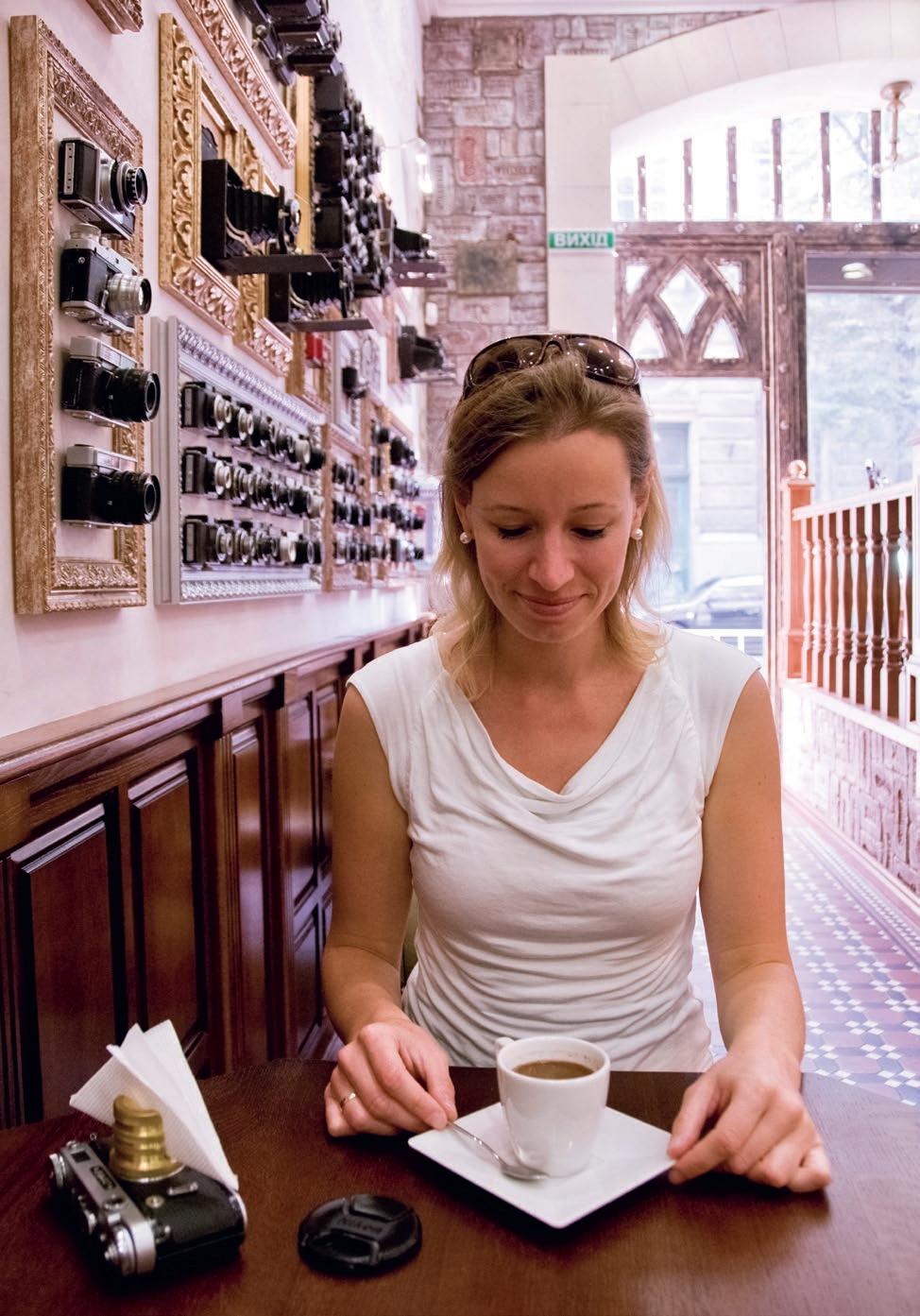 Sabine de Milliano
Sabine de Milliano

 Sabine de Milliano
Sabine de Milliano
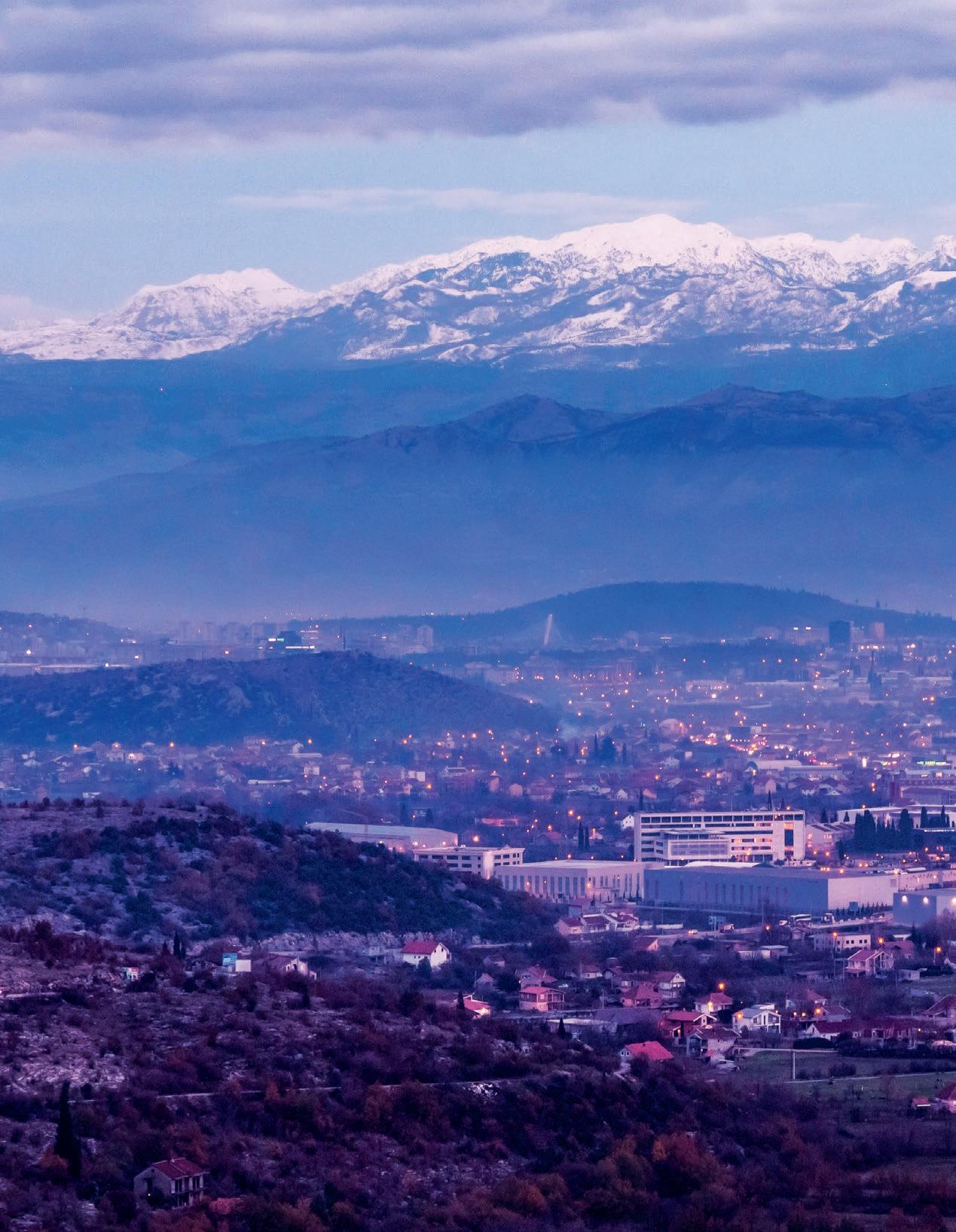
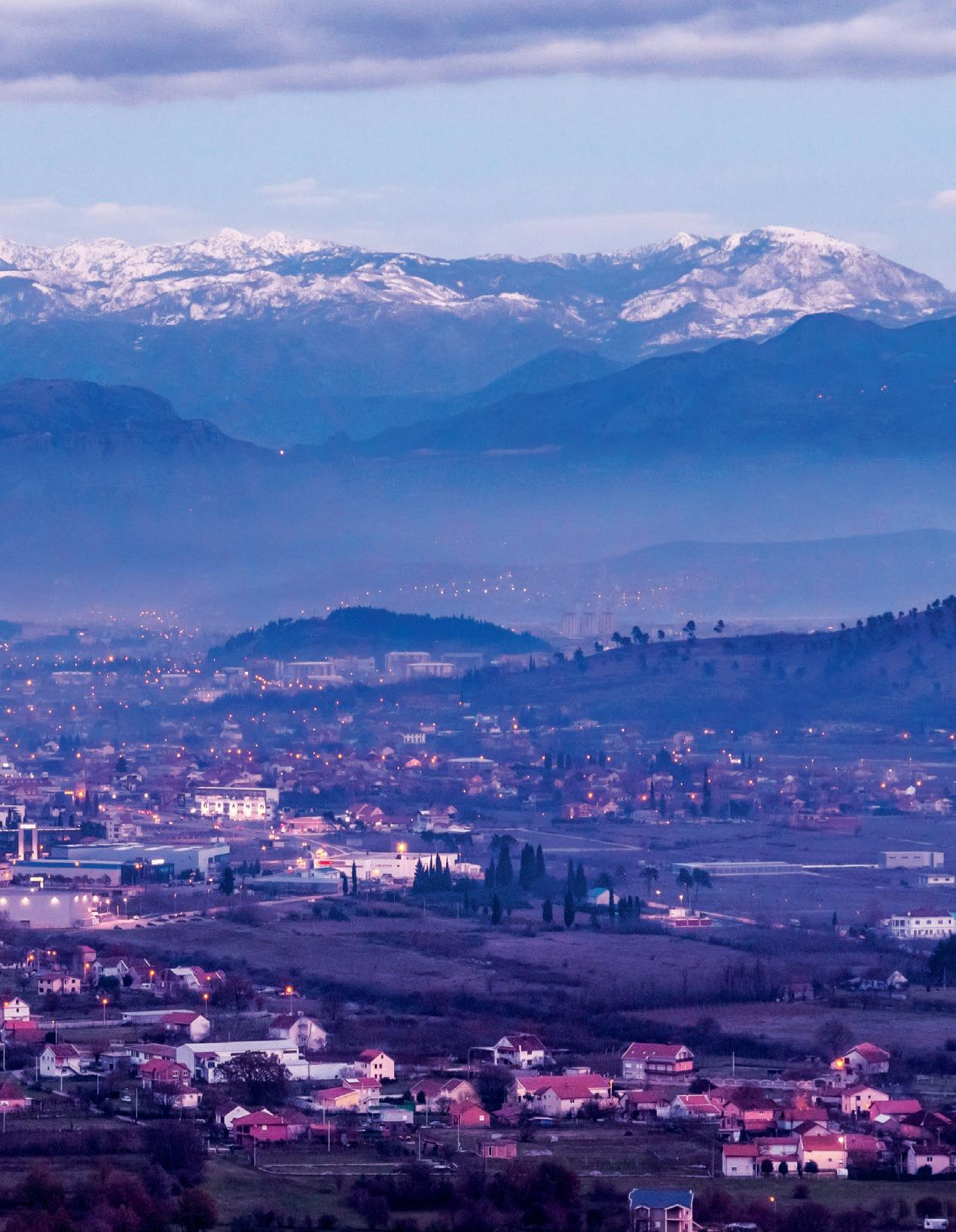
Podgorica, Montenegro
42°24’18.6”N 19°10’30.5”E
The road from Budva to Podgorica winds through rugged terrain and offers spectacular views of Montenegro’s capital.
// December 2018
Lička Jesenica, Croatia
44°59’41.9”N 15°26’02.9”E
Bright shades of yellow and green light up this rural scene in the Lika region.
// June 2013
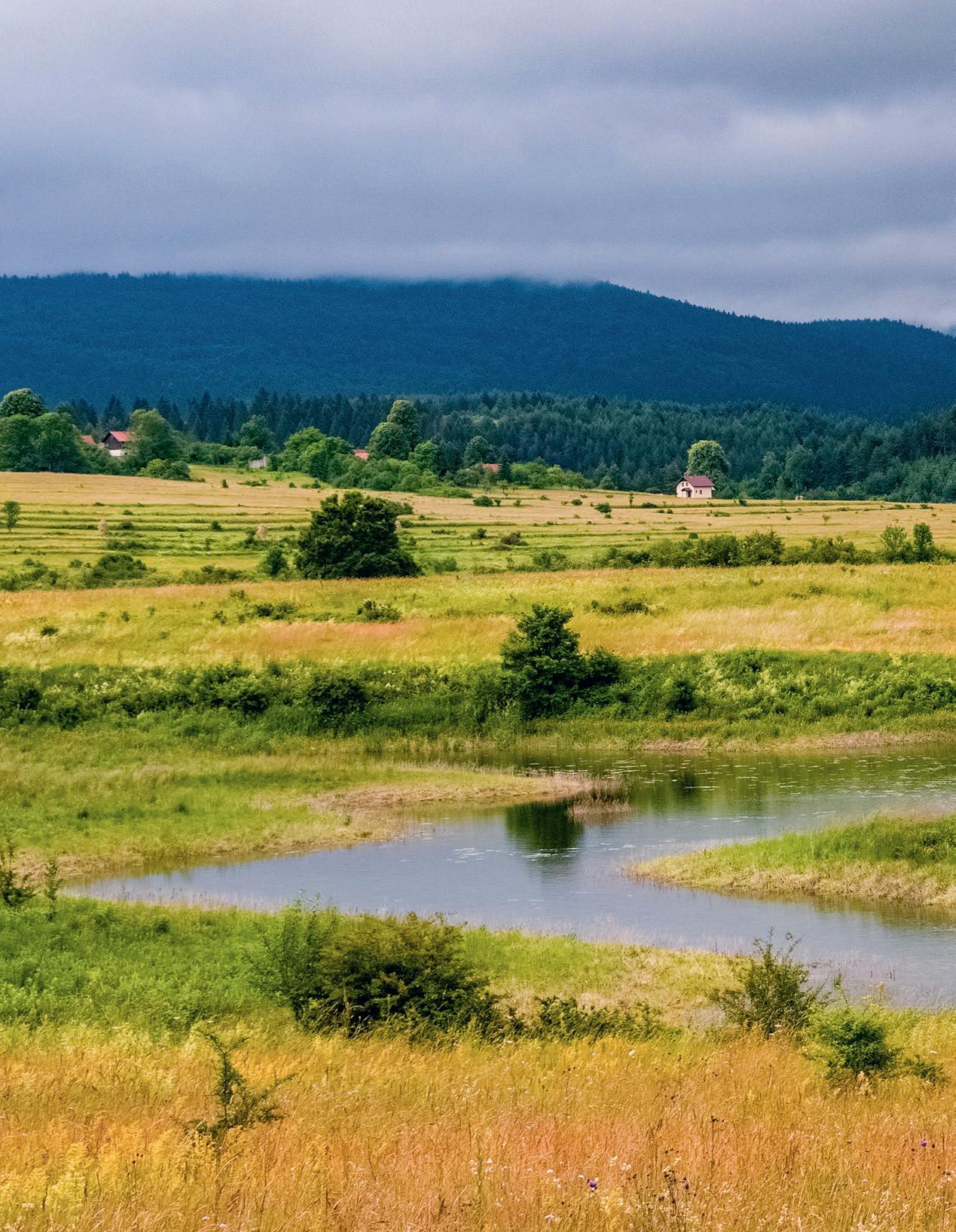
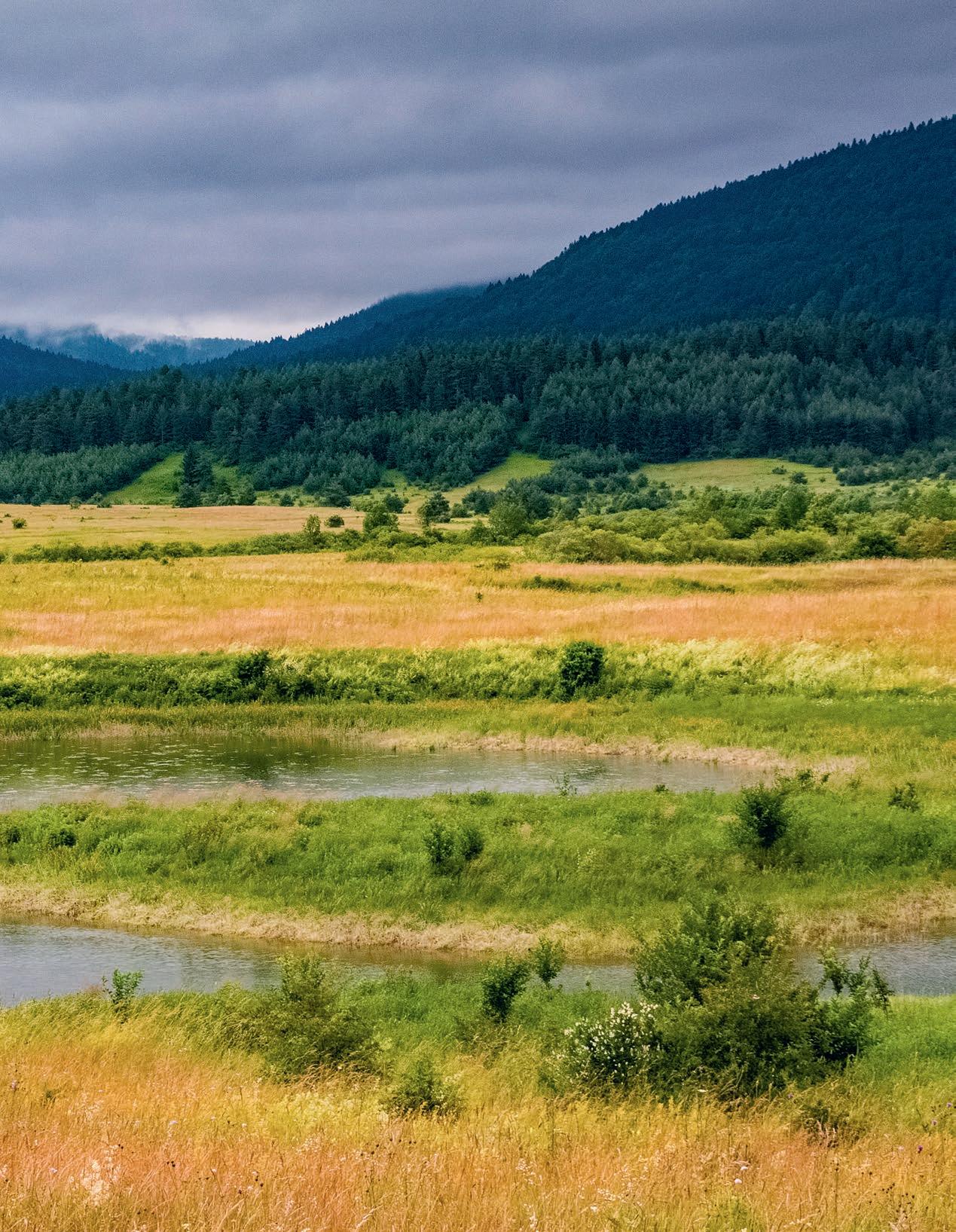
Foreword
Introduction The Empty North Crossing the Carpathians To the Far East
From Summit to Sea South and Sideways
Exploring the Southwest Around the British Isles Wild Winterscapes
About Sabine
Acknowledgements
Credits
Foreword
Bart HeirwegALMOST A CENTURY AGO , the famous French author Marcel Proust wrote:
“The real voyage of discovery consists not in seeking new landscapes, but in having new eyes.” A thought which comes to you almost spontaneously when you look at Sabine de Milliano’s work. Nowadays, it seems everyone is a photographer, but only a true photographer will make you look at the world differently.
In order to achieve that, the photographer needs to show you that world in a way the average reader only seldom sees it. Surprising Europe encompasses a broad spectrum of locations, both well-known and little-known. An impressive variety of nature and culture, landscapes and city environments. With hardly ever a human being in sight. A decision that I also consciously make as a landscape photographer. Almost as if we both subconsciously believe that our planet is even more glorious without our human presence.
Contrary to my fascination with morning’s first light, Sabine often shows her destinations in the evening. In a game of light and colour, that transforms every picture into a fascinating story. A moment in time, captured on film.
‘ Every image confirms the astounding beauty of this old continent and shows how resplendent it is, in spite of the dense population in many areas.’
But the viewer is also instantly aware of the time that has led to these images: the meticulous scouting, preparation and above all, the long wait for that one, perfect moment when all elements come together.
With success, because this book shows Europe at its best: from the Netherlands to Albania or Azerbaijan. Every image confirms the astounding beauty of this old continent and shows how resplendent it is, in spite of the dense population in many areas. The wide-angle lens with which Sabine captures the landscape, increases that spacious effect. The fact that the human being is almost invisible in her work, almost seems a logical result of her approach.
In the end, you should read this work as an invitation – an invitation to travel even more yourself and to embrace the unknown. Not as a passive consumer, but as a driven discoverer. Throughout the seasons and in good and bad weather, Sabine exposes a Europe without borders. A Europe that is a delight to the eyes. Go ahead, take a look. 13
Bart Heirweg is a landscape photographer from Belgium. He is author of the book Silent Fields: Memorial Sites of the Great War and De heuvels van de Ronde.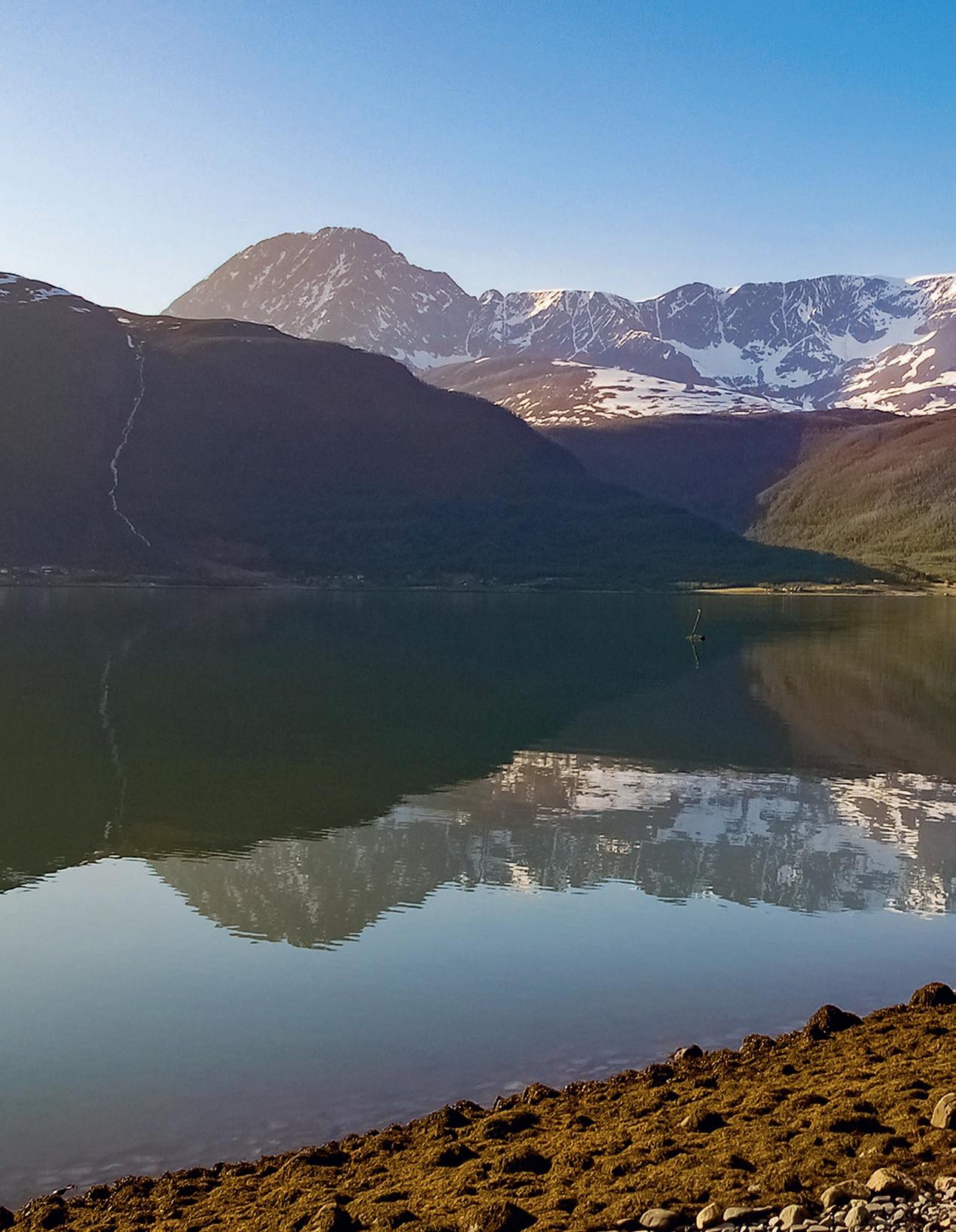
Lyngen, Norway
69°25’55.0”N 20°16’45.0”E
Scenic views of Lyngen, an 82-kilometres long fjord along E6 in Troms county.
// May 2010
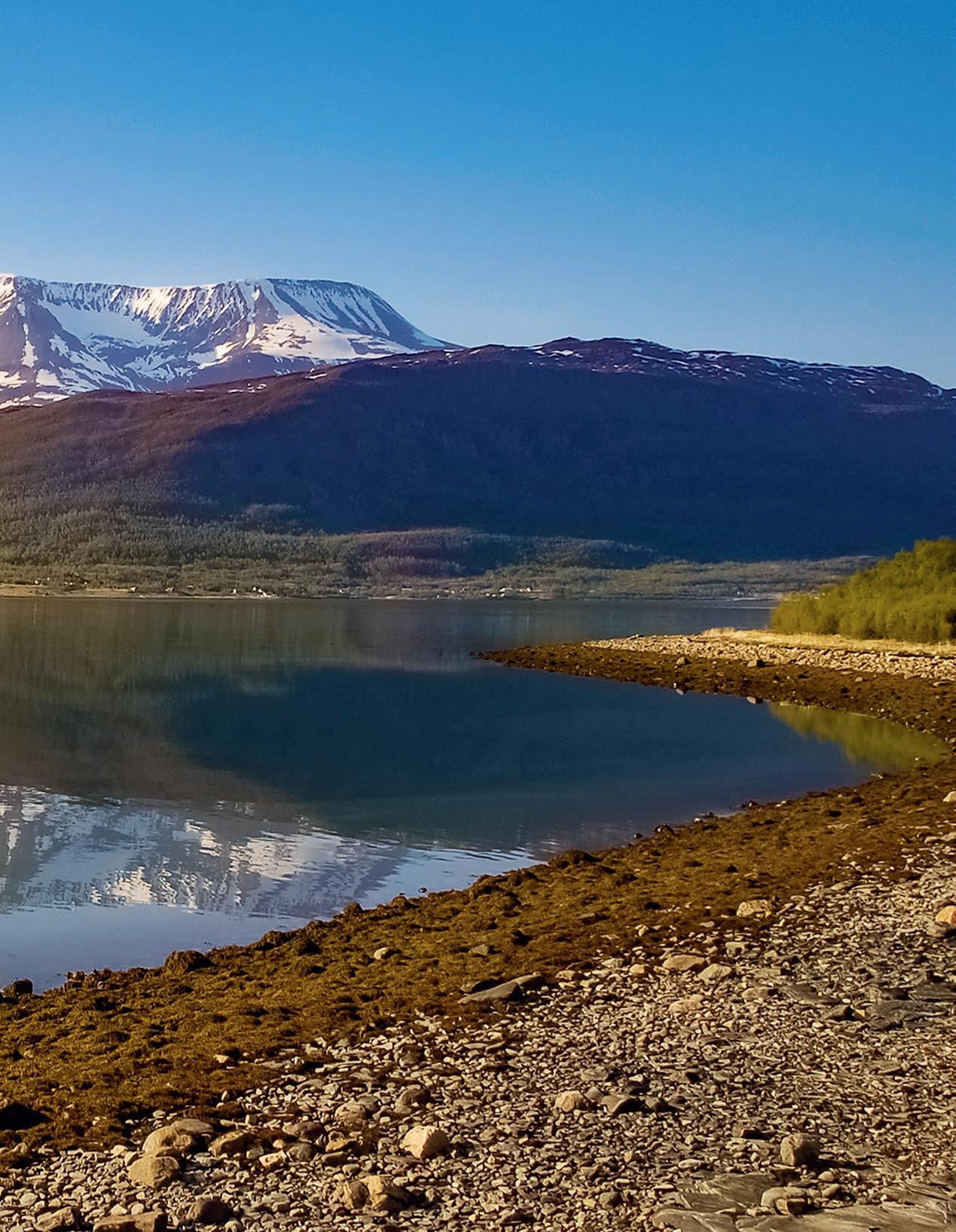
‘
Whether moving north or south on either side of the Gulf of Bothnia, this is a long but rewarding road trip for nature lovers.’
THE NORTH AND NORTHEAST of Europe are wonderful, wild and empty. Seemingly endless forests, uninhabited mountain ranges and many thousands of lakes and bogs. Reindeer are the true rulers of the roads up north. Golden chanterelles cover the forests in the northeast in autumn. Bison inhabit the last part of the primeval forest in the east. Nature clearly holds sway in this part of Europe.
One of the things you will notice on a road trip to the north and northeast is how the landscape gradually changes. Between the few scattered cities and towns, green fields and deciduous forests slowly become more mixed until there are only pines and shrub-sized birches left in the landscape. Then, if you travel beyond the Arctic Circle, the landscape increasingly empties. At some point, deep inside Sápmi, you no longer see any trees. Covering the northernmost parts of Norway, Sweden, Finland and Russia, Sápmi (also known as Lapland) is the region of spectacular landscapes, rough climate and sunny summer nights.
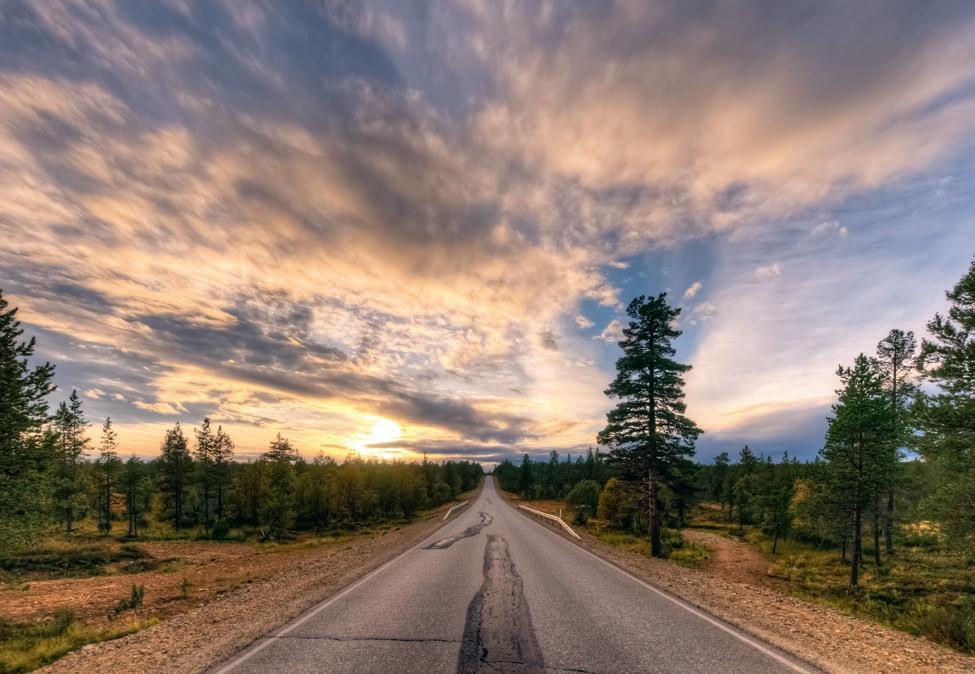
Every country has its own scenic highlights, but Lofoten is my overall favourite destination in this part of Europe. Few places show such dramatic landscapes as this archipelago in the Arctic part of Norway. It is photogenic in every weather, in every season.
Whether moving north or south on either side of the Gulf of Bothnia, this is a long but rewarding road trip for nature lovers. And, maybe surprisingly, for those who love Renaissance and Baroque style, because some of Europe’s finest cities are located in the northeast. Personally, I would recommend visiting St. Petersburg, Vilnius and Lviv because of their impressive architecture and rich culture.
A stroll through the State Hermitage Museum, the view from Gediminas’ Tower and tasting Lviv-style coffee are just a few examples of the great experiences the northeastern part of Europe has to offer.
E75 near Ivalo, Finland 68°29’57.0”N 27°28’41.7”E
Countless trees fill the landscape along the E75 to Ivalo. // September 2014
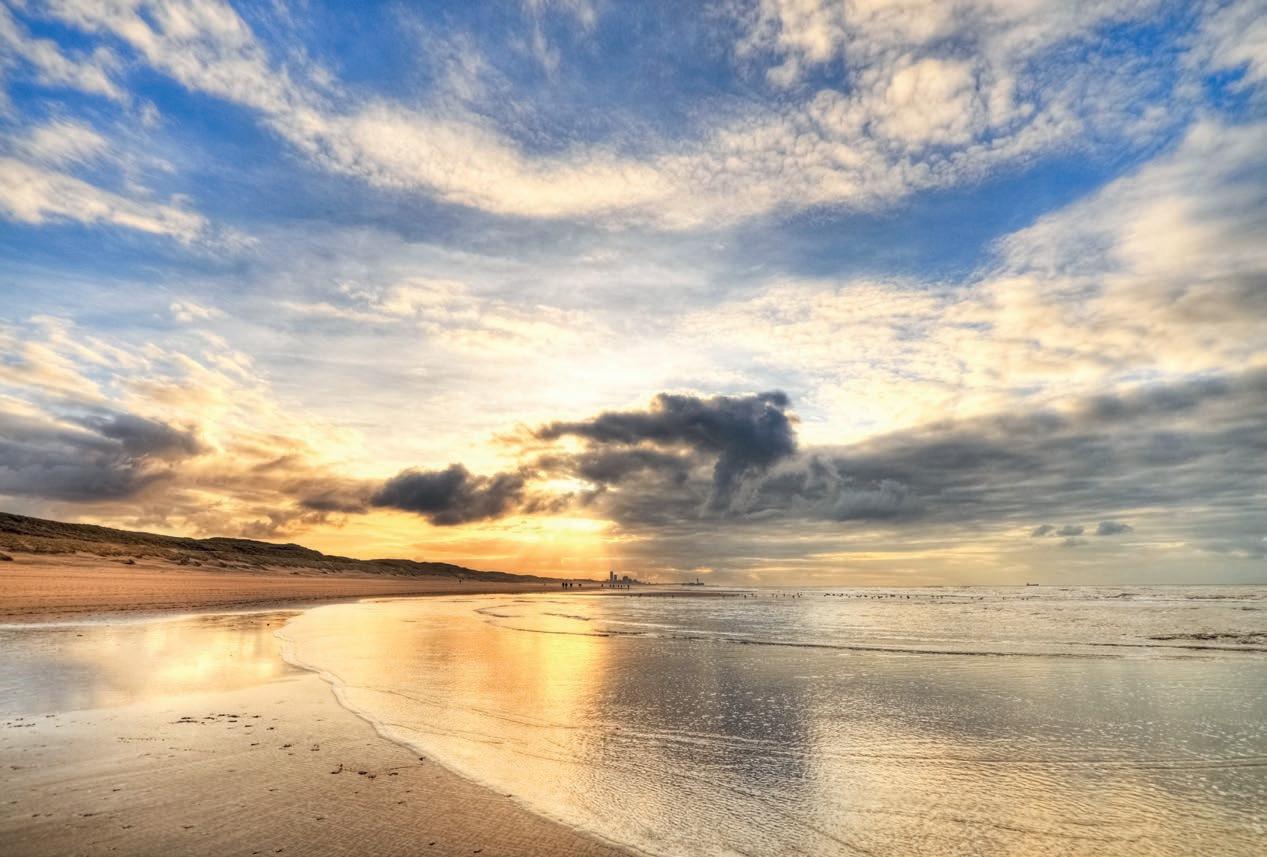
Wassenaar, the Netherlands
52°08’36.5”N 4°19’23.3”E
It was extraordinary mild weather on this January day in Wassenaar, South Holland. Ideal conditions for a winter walk along the Dutch coast. // January 2012
The Empty North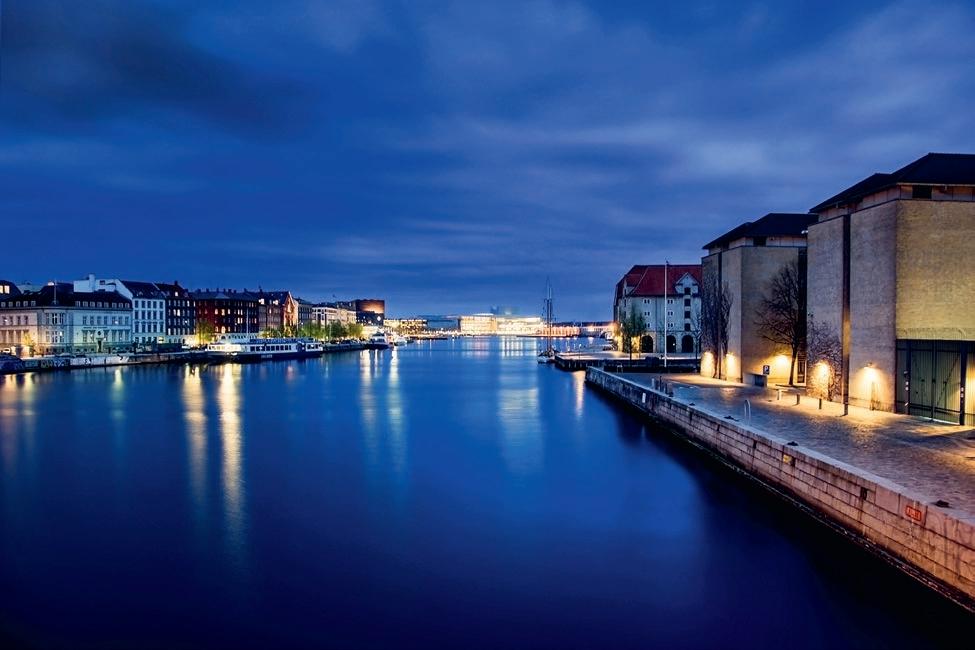
Copenhagen, Denmark
55°40’29.1”N 12°35’13.5”E
After a long day of driving I arrived in Copenhagen, the first stop of my road trip in 2010 to the North Cape. A very short dry spell made it possible to take this image.
// May 2010